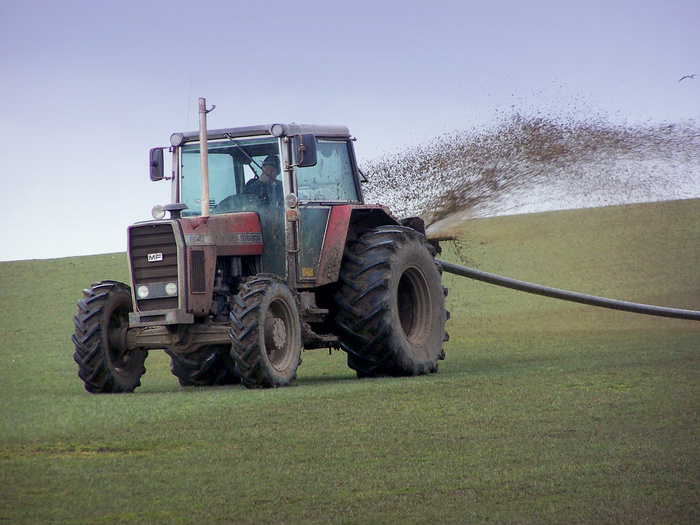
Welsh farming union NFU Cymru has 'strongly opposed' government proposals to designate further areas of Wales as Nitrate Vulnerable Zones (NVZ).
In response to the Welsh government consultation, which closed yesterday (23 December 2016), NFU Cymru set out its opposition to proposals which would see the area of NVZ in Wales increase from 2.4% to 8% with a significant new designation in Pembrokeshire and smaller new designations within Anglesey and Carmarthenshire.
NFU Cymru President Stephen James said the Union remains 'wholly unconvinced' on the basis of evidence presented by Natural Resources Wales that further NVZ designations are necessary in Wales.
He said: “Additionally, proposals to designate the whole of Wales as NVZ, known as ‘Whole Territory Designation’ are completely without any scientific foundation.
NFU Cymru says it is 'disappointed' that Welsh government has opted not to publish a regulatory impact assessment alongside the consultation.
“This work is vital to demonstrate the costs and impacts of proposals on individual businesses, sectors and specific regions and indeed the whole economy of rural Wales together with its social and cultural well-being.
“Without a comprehensive Regulatory Impact Assessment neither our members nor decision makers are in a position to make an informed, evidence-based decision on the impacts of designation or the cost-effectiveness of the action programme.
One in eight considering leaving
An NFU Cymru NVZ Survey showed that around one in eight (13%) of farmers would consider leaving the industry if the NVZ proposals are introduced.
Nearly three quarters (73%) of farmers surveyed did not have sufficient slurry storage on their farm to meet the proposed NVZ requirements and it would cost, on average, nearly £80,000 for Welsh farmers to upgrade their slurry storage facilities to achieve NVZ slurry storage compliance.
Mr James said: “The significant costs to achieve compliance need to be considered in the context of a sustained period of low market returns across many sectors. According to the figures based on the results of the Wales Farm Business Survey for 2015-16 (up to March 2016), average farm business income across ‘All Farm Types’ fell by £6,800 to £22,200 - a decline of around 23%. This is the third consecutive year for farm incomes to fall.
“The high levels of concern and opposition expressed by farmers throughout the consultation period are predominantly due to the added costs and reduction in farmers’ ability to make good management decisions, relating to resource management based on their knowledge of their own farm, prevailing weather and ground conditions.
Effectiveness has 'not been demonstrated'
NFU Cymru believes that the extent to which the existing NVZ Action Programme is effective in reducing levels of nitrates from agriculture has 'not been demonstrated.'
Mr James added: “NFU Cymru recognises the clear role that farmers have to play in contributing to further and sustained improvements in water quality in the years ahead. We would emphasise, that throughout the consultation period with our members, their willingness to play their part and take action to address nitrates where agriculture is responsible has been unequivocal – farmers take their environmental responsibilities very seriously.
“We are strong advocates of appropriate interventions where poor practices are responsible. It is our view that approaches to address water quality must consider the full range of issues and sectors influencing water quality, be evidence-based, provide local solutions to local problems working in partnership with industry.”
Concluding Mr James said: “NFU Cymru is strongly opposed to the consultation proposals as the costs associated with the implementation vastly outweigh any benefits to water quality.
“NFU Cymru believes that the new legislative framework provided through the Well-Being of Future Generations Act 2015 and the Environment (Wales) Act 2016 presents opportunities and the flexibility to move forward and make progress on water quality issues on a different basis to that proposed within the consultation.
“An alternative approach rather than an unwieldly EU directive will enable us to develop, grow and realise NFU Cymru’s vision of a productive, progressive and profitable industry that will deliver jobs, growth and investment for Wales.”
